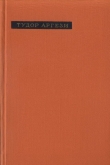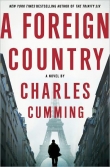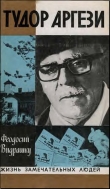
Текст книги "The Tudor Conspiracy"
Автор книги: Christopher Gortner
Жанр:
Исторические приключения
сообщить о нарушении
Текущая страница: 6 (всего у книги 19 страниц)
Chapter Seven
Simon Renard’s office-if such it could be called-was located in the northernmost wing of the palace, crammed between a gloomy disused courtyard and outer gatehouse leading into the park. It wasn’t sumptuous or even particularly well appointed, certainly not what I’d expect for the high-powered ambassador of Emperor Charles V, who represented Hapsburg interests at court. Rather, the antechamber where Renard’s staff worked stank of cheap tallow, must, and mildew. Boxes crammed with papers were piled in every conceivable corner, precarious towers that looked unsteady enough to keel over at any moment. At two desks placed opposite each other hunched morose clerks who looked as if they’d not seen the sun in years; they had matching quills in their ink-splotched hands and the same resentful expressions on their faces when I informed them I had an appointment with the ambassador.
“Wait,” one grumbled, pointing to what looked like a stool buried under a heap of ledgers. The other clerk rose slowly, almost indifferently, and trudged to the door, knocking twice before he entered and closed the creaking door behind him.
I remained standing, as far as I could from the leaning pillars of paper, smiling at the remaining clerk. He scowled and bent his head over his work. His slightly more rotund but equally ill-humored twin emerged from the room a few moments later and said to me, “Leave your weapon with us.”
I unbuckled the scabbard from my waist and set it on his desk. “It’s expensive,” I added. “I expect you to take care of it.” The clerk grunted. I wondered what he would think if he’d known the sword had once belonged to our late King Edward; crafted of Toledo steel, it was worth a small fortune. He might not have cared. I could have carried a harquebus under my cloak for all the attention he paid me.
I stepped through the door into a tidier chamber, boasting a mullioned window that offered a blurry view of the snow-speckled parkland beyond. The air here was sweet. Renard must enjoy beeswax candles for light. A brazier in the corner exuded heat.
“Ah, Master Beecham.” Simon Renard stepped from behind his desk, hand extended. Once again I was struck by his self-assurance. “You’re punctual. Good. I like that.”
He wore unrelieved black, the wool of his doublet of high quality, the fine cambric shirt peeking above his collar edged in distinctive Spanish lacework. Without his cap, I saw his russet brown hair was thinning on top, his high unlined forehead adding distinction to his features. He’d seen a barber this morning: I could detect faint soap on his person, and his beard was cut closer to his chin.
He motioned to a chair. I declined his offer of wine. “Too early?” he remarked. “Punctual andabstentious. Most unusual for an Englishman, if I may be so candid.”
“My lord is gracious,” I said. My senses heightened as I watched him pour a precise measure of red wine into a goblet, to which he added a portion of water. He acted as if our encounter yesterday were of no importance. It was an enviable quality-and a telling one.
Men like him were not the forgiving type.
He paced to his window. “Such a dreary winter.” He sighed. “The snow reminds me of Castile, except here it’s damper and lasts longer. The cold-it hurts my bones.”
I kept my gaze steady. “Has my lord been in England long?”
“Sometimes it feels like forever.” He returned to the desk. “It’s been a little over eight months. Before this, I was stationed in Paris, but my wife and children reside in Brussels. I’d hoped to visit them this year, but alas”-he swept his hand over the broad leather-bound notebooks and other detritus on his desk-“an ambassador’s work never ends.”
I wasn’t taken in by his complaint or casual imparting of personal information. He hadn’t agreed to see me to discuss the weather or his official woes.
I said, “Winter can be harsh. This one may get worse.”
“Yes. I’m told the Thames is close to freezing over. A rarity, I hear.” His smile lingered as he resumed his seat. He had not yet tasted his wine.
He let the silence between us settle. Another trick of the trade, one Cecil had employed to significant effect. It induced a subtle anxiety that could compel a less patient man to initiate conversation. I was not susceptible to it. Not anymore.
His smile faded. “Her Majesty and I spoke at length about you after you left us. She assures me you are trustworthy.” He set his goblet aside. So he, too, was abstentious. His offer of wine must have been either a test of my stated sobriety or a means to loosen my tongue. “She gave me a detailed account of your previous efforts on her behalf. It was all most impressive, particularly coming from someone with no apparent stake in the outcome.”
“My stake may not have been apparent,” I said, “but my payment depended on it.”
“Oh, yes. Her Majesty told me you’re a man for hire, with no personal affiliations of your own. Though it does raise the question of why you chose to undertake those errands in the first place. At the time, Northumberland had the realm in his grip; it must have been widely believed he’d succeed in putting his daughter-in-law Jane Grey on the throne.”
“I wouldn’t know,” I said, and his gaze sharpened. “I wasn’t privy to the duke’s plans. I was hired to convey a letter from the council, which I did, and Her Majesty was gracious enough to hire me in return. But surely Your Excellency has verified all this by now.”
He reclined in his chair. “Unfortunately, I could not. No one on the council seems to remember having seen you, much less hired you.”
“That’s because no one on the council did. I was hired by Cecil. Anyway, given the circumstances, I’m not the kind of person any of them would want to remember.”
He let out a sudden laugh. “You are a fascinating fellow, most unexpected. I must confess, besides the comforts of home what I most miss about the Continent is stimulating conversation. In Paris, it’s a staple of life, like good bread or wine. Alas, I’ve not found not much of either here; Englishmen are entirely too preoccupied with these tiresome matters of religion. No one has much inclination to cross swords, so to speak.”
“Unless it concerns that tiresome matter of religion,” I said, and he took up his goblet to sip. It reassured me. I’d gained enough confidence to precipitate his relaxation, if not his trust. Then he said, “Are you one to cross swords, Master Beecham?”
I allowed myself a smile. “Is it a condition of my employment?”
“Indulge me.”
“If you’re asking if I’m inclined to fight for one faith over the other, the answer is no.”
He arched a brow. “You have no preference?”
“I didn’t say that. I just prefer not to fight over it. I’m a man for hire, as the queen said. My motto is ‘Whoever bids the highest. The soul can shift for itself.’”
He went quiet, observing me with a studied impartiality. It occurred to me that Simon Renard was testing my suitability for the task he’d already prepared for me.
“So we might say that for you, faith rests in the purse,” he said at length.
“We might, though I wouldn’t want to be quoted on it.”
“Indeed. How is this, to start?” He inked a quill, wrote on a scrap of paper, and pushed it to me.
I looked at the sum, then allowed a few seconds to pass before I said, “Generous, to start. Though it depends on what it’s for. I’m not accustomed to agreeing to a price before I know what I’m being paid for.”
“Naturally.” He took another sip. “As you may have surmised from those idiots in my antechamber, I am indeed in need of another clerk. Actually, several more, but as you made clear to me and Her Majesty yesterday in her apartments, an office position is not your preference. Nor, you will be satisfied to know, is it the job Her Majesty has chosen for you.”
Under my jerkin, my stomach knotted. “Chosen for me? Could Your Excellency be more specific?”
“I can, though what I am about to say must be kept in the strictest confidence.” He paused; when I assented, he went on. “Her Majesty and I believe there is a conspiracy afoot against her. She’s made no secret of the fact that she deplores the heresy that has overtaken this realm, or of her determination to remedy it. However, not everyone on the council shares her aspirations. Those against her are in the minority, naturally, but they exist nonetheless. I’ve had an eye on this subversive element for some time now, but until recently Her Majesty has refused to accept that her own subjects may seek to do her harm.”
I noted he made no mention of the emperor or Prince Philip, though there could be no doubt he was acting as much on their behalf as the queen’s. Indeed, this so-called subversive element could be a direct result of the queen’s consideration of a foreign Catholic prince as her spouse, only months into her own reign.
“But you believe her subjects do, in fact, seek her harm?” I said carefully.
“I knowit.” He set his hand on the desk. “The queen has enemies not only in the land but here, in this very court! They seek to destroy her peace of mind and overthrow her rule, if they can manage it. They would plunge England into chaos, to their own advantage.”
“I see. May I ask who these enemies are, precisely?”
“Do you propose I give you names?” he retorted. “If I had them, we’d hardly have need of you, now would we?”
“Nevertheless, you mentioned you’ve had an eye on this subversive element for some time. Surely you must have some idea of who they are?”
He went quiet, regarding me as if he were contemplating throwing me out. Then he said tersely, “I have only suspicions, unfortunately.” He paused again, drawing out the moment. I didn’t reveal my apprehension, waiting patiently as if I had this whole day. Abruptly he came to his feet, moving to the window. Standing with his back to me, he said, “If you succeed in finding these traitors, Her Majesty will be generous. An official post at court is not out of the question; perhaps a title and grant of lands, if you prefer. But in return, the evidence must be unassailable. She will not be satisfied with less.”
“It sounds as if my loyalty is in question,” I said.
He turned around to me. Though nothing outward in his demeanor had changed, his tone now held unmistakable menace. “The queen has expressed confidence in you. Naturally, I must bow to her wisdom. Nevertheless, a man for hire, with no stated religious affiliation, who once worked for Cecil and is available to the highest bidder-well, surely you can appreciate my concern.”
“I do.” I inclined my head. “I thank you for your time. I’d not wish to be an impediment. I can seek my livelihood elsewhere and spare you this … concern.”
He let me stand. I moved to the door and actually set my hand on the latch before he remarked, “Her Majesty wants you, and you alone, for this task. In fact, she commands it.”
I swallowed and returned to my chair. My mind raced. It seemed I hadn’t kept Mary’s trust after all. I had stepped into the viper’s nest. This time, she would have me prove myself in a job of her choosing, and everything told me I wasn’t going to like it.
Renard let the moment settle. Then he said, “I would not hire you were it within my purview. You are not the sort of man to entrust with a matter of this gravity, and I protested as much to Her Majesty. Still, she gave me her order, and I must obey.” He paused; his next words hit me like a bludgeon to the stomach. “The suspects she wishes you to investigate,” he said, “are Edward Courtenay, Earl of Devon, and the Lady Elizabeth.”
I tasted bile. Though I’d expected this, to hear it said aloud was terrible, and it confirmed what Cecil had told me about Renard having Mary’s ear.
“If you know who your suspects are,” I said, my entire body tightening in the chair, as if braced for an assault, “why not simply arrest and question them?”
He made an impatient sound. “Her Majesty is a trusting woman. She does not want to think the worst of anyone, much less her own sister and her cousin. She’ll not act before she has the proper evidence.”
“And you expect me to…?”
“Hardly. You’d never get any closer to Lady Elizabeth, for example, than you did last night with that dog. She hides her true self like no other; she is as cunning as she is wary. I daresay nothing short of the rack would break her.” He smiled-actually smiled. “And we can hardly throw her on the rack, now can we? Nor do we dare arrest her yet; that would only alert her supporters, who would change whatever they plan to evade detection.”
“Supporters?” I echoed. “You believe she has supporters?”
“Traitors invariably do. And while Lady Elizabeth and the Earl of Devon cannot be questioned directly, if they conspire to treason, as I believe they do, it stands to reason there must be some evidence of their conspiracy. We need any letters that may have gone between them and their accomplices, as well as dates and places of their meetings. This is what I require of you. And I require it beforetheir conspiracy comes to pass.” He paused, with emphasis. “The queen may be trusting, but I, Master Beecham, am not. A man in my position cannot afford to be.”
I had to force myself to lean back in my chair, my hand at my beard. Elizabeth had once told me that Mary was incapable of trust, having inherited the worst of their father; now I understood what she meant. It wasn’t that Mary could not trust; it was that she was easily persuaded to doubt-a doubt Renard now preyed on to his own ends.
Mary still had a conscience, though; she had insisted on hiring me because she was unwilling to condemn her sister on Renard’s word alone. That had made him desperate. His secret plans for the queen’s marriage could not stay secret for much longer; time was running out. The uproar against Mary’s decision to wed the Spanish prince could be worse than he anticipated; should others at court vocalize their opposition, it would be difficult to single out Elizabeth as the cause. To succeed in destroying the princess, Renard needed proof of treason beforeany public announcement of the queen’s betrothal was made.
That meant I could win. I could beat the ambassador at his own gambit.
“What if nothing can be found?” I asked. “Again, excuse me for stating the obvious, but with two such persons, well, surely you can appreciate myconcerns. I value my reputation, my lord, such as it is, and the Lady Elizabeth is the queen’s heir.”
His face turned cold. “I’d not be so quick to consider her such. There is serious question as to her suitability. Some believe she is not the king’s daughter at all. The queen herself has her doubts. She once told me she sees nothing of her father in Elizabeth and too much of her whore of a mother.”
My fist clenched at my side. Had I not found myself in this position, I’d have knocked his teeth out for uttering such baseless filth.
“It is not in my purview to speculate on such matters,” I managed to say. “But if evidence cannot be found against the Lady Elizabeth, I’ve no desire to be singled out as the man who sought to incriminate her.”
“You won’t be,” said Renard. “As I mentioned, this task is strictly confidential. Only the queen and I know of it. You can rest assured that Her Majesty would not have asked you to undertake it if she doubted the outcome. Do you understand?”
I did. I understood all too well. I understood I had no guarantee he wouldn’t order me killed the moment I delivered what he requested. I also understood that while he might hide behind the queen’s authority, this was his deed. He had orchestrated an invasion by a foreign power through the betrothal with Prince Philip and would not cease until he had Elizabeth on the block. He was ruthless and lethal.
To save the princess, he must be defeated.
“I understand perfectly, my lord,” I said.
He remained motionless, his glacial stare fixed on me. Then his expression shifted with mercurial swiftness, that false air of camaraderie resurfacing in the blink of an eye.
“I’m pleased to hear it, as will be Her Majesty. I’m sure I needn’t add that you must refrain from making yourself too visible about court, as you did last night. And if you provide me with a list of expenditures, I’ll do my best to see them fulfilled. Though I must warn you, my resources are quite limited. However, I can spare an extra man if you…?”
Either he toyed with me or he’d forgotten who he was dealing with. Did he actually think I’d ask him to set a spy on me?
I stifled the urge to smile. “I prefer to work on my own, given the delicate nature of this assignment. However, a third of my wage up front would be appreciated. Oh, and a new dagger, if at all possible. I seem to have misplaced mine.”
He wrote on a paper, then rang a small silver bell on his desk. The rotund clerk waddled in, wiping his hands on his breeches, spilling crumbs.
“Take care of this,” Renard said, thrusting the paper at him, “ beforeyou resume your dinner.” The clerk scowled and trudged out. Renard turned to me with an exasperated look. “Decent help is so difficult to find these days. I can’t tell you how refreshing it is to finally be working with a professional. I’ll expect a report from you in, say, three days? I trust that’s sufficient time to compile…?”
“I’ll do my best,” I said. I stood and shook his hand, resisting the revulsion I felt as I enclosed his dry palm briefly in mine.
Let the hunt begin.
Chapter Eight
I inhaled deep of the winter air, cleansing my mind and lungs as I strode across the base court toward the stable block, my new Spanish poniard of flexible Toledo steel secured in my boot, my sword at my side and my purse weighting my pocket.
The day was crisp; distant clouds clustered on the horizon, white as the snow on the ground. Urgency quickened my step. I prayed Elizabeth would keep our appointment; she had to be apprised that Renard was setting a trap for her. For the moment, I was a step ahead. I’d just been hired by the man I must thwart, but I still had Courtenay’s henchman to worry about. She could tell the earl to get his man to back off, but until then I was exposed, and I kept looking over my shoulder, listening for the telltale crunch of feet on snow that would alert me I was being followed.
I covered my head with my hood as I neared the stables, avoiding several young grooms idling under an overhang by the courtyard, where they tossed dice on a mounting block and shared an illicit wineskin. Evidently there wasn’t much call for horses today. I scanned them from under my hood, but I didn’t see Peregrine among them. With any luck, he’d lured his friend Toby elsewhere to question him.
Within white-and-green-painted buildings that housed the court’s horses and dogs, I was greeted by a startled black cat, which hissed and slunk away. The comforting smell of hide, manure, and hay brought back a sudden, vivid reminder of my boyhood, when I’d been charged with caring for the animals on the Dudley estate.
I almost didn’t hear her approach. One moment I was breathing in the close, still air; the next I felt a shift and whirled about, my poniard drawn.
“Careful,” she said, and as I lowered my weapon, my heart beating fast, I found myself staring into Elizabeth’s leonine eyes, the black velvet of her hood framing her face. Her voice was icy. “I thought I told you that if I needed you, I would send word to Hatfield.”
I replied cautiously, “Yes, you did. But I came anyway, to help you.”
“Did you?” Her brow arched. “I had to bribe the grooms; luckily, it doesn’t take much to entice them. You didn’t think about that, did you, when you slipped me your note? That anyone could have seen us meeting here?”
I cursed under my breath. I hadn’t, in truth. I had been so intent on speaking to her, I hadn’t considered the possible consequences.
“We’ve still a little time,” she went on. “I made up an excuse that I needed fresh air, a walk around the grounds and to check on my horse. I’ve sent Blanche Parry back for my gloves and muff, with that pack of witches my sister surrounded me with, but they’ll return soon enough, so”-she fixed her gaze on me-“tell me why you are here.”
I had a sudden moment of doubt. What was I doing? She’d been bred for this world; she’d long since learned to navigate its treacherous shoals. I hadn’t. Still, I had no choice but to go on. As I recalled what Renard had told me and what he’d hired me to do, I said bluntly, “I’ve just had an appointment with Ambassador Renard. He’s charged me to find evidence that you and the earl conspire against the queen.” I lowered my voice, the restless horses in the stalls behind us nickering. “He seeks to arrest Your Grace for treason!”
The sparse color in her cheeks faded. When she spoke, her voice was tremulous. “So, it has finally happened. Mary has given that vile man leave to move against me.”
“Yes, but she has doubts. Renard preys on her suspicions. He seeks your downfall to his own ends, and-”
She let out a mirthless laugh. “My sister hardly needs his persuasion to think the worst of me.”
I searched her face. “Does she have reason to? I was in the passageway last night; I overheard everything. And Courtenay was very concerned that I might go to Renard or the queen with it.” I took a step closer to her. “What are you involved in? What did you give Courtenay last night, and why did he mention Robert Dudley?”
“Not that I need to answer you,” she said with a hint of asperity, “but I gave him a book. It’s hardly evidence of anything.” She paused, her voice turning grave. “I warn you now: You, too, could be in grave danger if you persist in this pursuit. I’ll not have you risk yourself for my sake, not this time. Regardless of your loyalty, this is not your fight.”
“Let me decide that on my own,” I said. As she drew in a sharp gasp, I did something I had never done before: I took her hand. Her bare fingers were cold, and as she felt my touch, her expression faltered. I knew how difficult this was for her. She was daring, secure in her right to act as she saw fit. Few ever glimpsed the vulnerability she hid within.
“Who was that book for?” I asked softly, though I already knew.
She withdrew her hands. “For Robert.” She lifted her chin, as if to preempt my outburst, and I recalled that volatile passion between her and Dudley, as inexplicable to me as it was terrifying. Their desire defied everything I thought I knew about Elizabeth, like a reckless tide that swept caution aside, though not, God willing, her instinct for self-preservation.
I appealed to this quality in her now. “Have you forgotten how Robert and his father did everything possible to force you, and your sister, into an impasse? They tried to set Jane Grey and Guilford Dudley on the throne. Had they succeeded, your sister would be dead or imprisoned; you’d have been obliged to do as they saw fit. Robert does not deserve your care for him. Were the situation reversed, I doubt he’d do the same for you.”
Her eyes sparked. “You seem to forget that I know what Robert really desired.”
“No, I remember all too well. He wanted to marry you and share your crown.” We locked eyes. “But now, he and his brothers are condemned. Should Renard discover you’ve been communicating with Dudley, a traitor, he will use it against you.”
Sudden pallor tightened her features. “It’s more than a book,” she said. “I put a letter inside it. Courtenay has a way to smuggle it into the Tower. He told me it was safe.”
I felt as if my insides had turned to liquid. “A letter?”
“Yes,” she said. “If my sister weds Philip of Spain, she will destroy everything-our faith, our future, our very lives. Robert must be forewarned. The betrothal could be his death warrant; Philip will demand it of her. He will demand that she execute every traitor in the Tower before he sets foot on these shores.”
I found it difficult to draw a full breath. It was more than Cecil had feared, more than Renard could have hoped for: a letter from Elizabeth herself, to none other than Robert Dudley, a convicted traitor. I did not want to ask the question that burned on my lips; I did not want to confront some terrible truth about this woman I served. Yet I had to be sure. I had to know how far Elizabeth was willing to go before I committed myself.
“Do you know what Dudley and Courtenay plan?” I asked. “Tell me now, or so help me, I’ll leave court this very hour. I cannot serve you if you will not place your trust in me.”
I saw her teeth cut at her lower lip, hesitating. I turned on my heel and set off for the stable entranceway. I meant it. I would not be manipulated, not even by her.
“Brendan, wait.” The unexpected tremor in her voice stopped me. I glanced over my shoulder. “I don’t know anything else,” she said. “I swear it to you.”
I heard Cecil in my mind, We can guide her to her destiny-you and I. But first, we must keep her alive,and I had a vivid recollection of the queen in her fabric-strewn chamber, the complicit laughter of her women, that portrait half-covered by a sheet in the corner. In that moment, I faced a terrible choice. I could turn away now and disappear the way I had come. I could return to the life I’d left behind. I felt a sudden longing for that uncomplicated existence, where Kate and I could wed and have children; where I needn’t watch for shadows at every corner; where there were no covert plans or lies within lies.
A simple life, without the burden of protecting Elizabeth.
Yet even as I imagined it, I knew I deluded myself. My choice had been made. I’d made it the hour I agreed to serve her. I’d done it willingly, knowing the price I might pay.
Elizabeth and I shared the same blood. My fate was now bound to hers.
“We still have time,” I said, and she gave me a startled look. “To get your letter back,” I explained, “and discover what Dudley and Courtenay plot before it is too late. Renard wants evidence; if I can, I will give it to him.”
She took in my somber expression. “But it would mean their deaths…”
“It could mean yours if I do not,” I replied. “You must survive this. Do nothing more, Your Grace; say nothing more. Let me retrieve your letter and do whatever is required, even if it means betraying Dudley and Courtenay.”
Her hands clenched at her sides. “No. I cannot. There must be another way.”
“There isn’t. Your letter could be yourdeath. You cannot rule from the grave.”
Her conflict played upon her face, a tangled web of emotions that had no doubt haunted her since she arrived at court and realized the path her sister would take-a path that led to the abolishment of her faith and her right to be queen. She’d fought to save herself and those she loved; now she had to confront her own thorn-laden choice.
“It’s the only way,” I said. “You or Dudley. You cannot save both.”
“Let me think!” She held up her hand, turning away. From outside the sound of voices reached us, along with the clack of wood pattens on cobblestone. As the grooms catcalled and women returned pert replies, Elizabeth straightened her shoulders. She turned back to me, her eyes remote.
“So be it,” she said quietly. “Do what you must.”
The women were almost at the doorway; we had no more time. I shifted into the nearest stall. As I dropped to my knees beside a startled mare, yanking my cloak about me to blend with the shadows, I heard Elizabeth say with staccato impatience, “Where have you been? I nearly froze to death here waiting for you. God’s teeth, how long does it take to fetch a muff and gloves?” I heard the women’s murmured apologies, followed by hurried footsteps as they walked out after the princess.
I let out a shuddering breath. Elizabeth had put herself in harm’s way to save Dudley and her future right to be queen.
As I had suspected, however, when it came to choosing between them, she came first.








